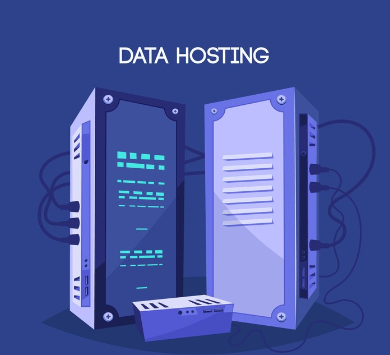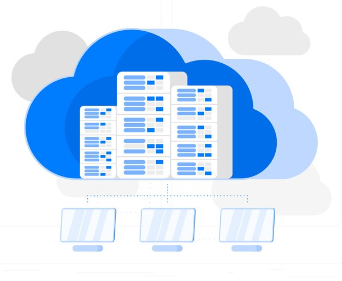Cloud Hosting Dedicated Server
In the realm of digital infrastructure, the amalgamation of cloud hosting and dedicated servers has ushered in a new era of reliability and scalability. To comprehend the significance of this union, let’s delve into the intricacies of both cloud hosting and dedicated servers.
What is a Dedicated Server?
A dedicated server is a robust hardware resource exclusively allocated to a single client, ensuring optimal performance and control over computing resources, unlike shared hosting environments, where multiple users share the same server, a dedicated server grants unparalleled autonomy and customization.
Evolution of Cloud Hosting
The evolution of cloud hosting marks a paradigm shift in how businesses manage and deploy their IT infrastructure.
From the traditional model of on-premises servers to the dynamic and elastic nature of cloud computing, the journey has been transformative. Cloud hosting leverages virtualization technologies to provide on-demand access to a pool of computing resources over the Internet.
Understanding Cloud Hosting
Definition of Cloud Hosting
Cloud hosting epitomizes the epitome of flexibility and scalability in the digital landscape. It entails the provisioning of computing resources such as storage, processing power, and networking through a network of interconnected servers. These resources are delivered on demand and can be rapidly scaled to accommodate fluctuating workloads.
Advantages of Cloud Hosting
Scalability
One of the hallmark benefits of cloud hosting is its unparalleled scalability. Businesses can effortlessly scale their infrastructure up or down in response to changing demands, ensuring optimal performance and cost efficiency.
Reliability
Cloud hosting offers a high level of reliability by distributing workloads across multiple servers. This redundancy minimizes the risk of downtime and ensures uninterrupted access to critical resources and services.
Cost-effectiveness
Cloud hosting follows a pay-as-you-go model, allowing businesses to pay only for the resources they consume. This eliminates the need for upfront capital investment in hardware infrastructure and enables cost optimization through resource optimization and efficiency.
Dedicated Servers in Cloud Hosting
Definition of Dedicated Servers
In the realm of cloud hosting, dedicated servers represent the pinnacle of performance and control. These servers are dedicated exclusively to a single client, offering unparalleled computing power, storage capacity, and network bandwidth.
Importance of Dedicated Servers in Cloud Hosting
Dedicated servers play a pivotal role in cloud hosting environments, providing the foundation for mission-critical applications and workloads.
Their isolation ensures consistent performance and security, making them ideal for businesses with stringent performance and compliance requirements.
Key Features of Dedicated Servers
Key features of dedicated servers include robust hardware specifications, dedicated resources, customizable configurations, and comprehensive management options.
These features empower businesses to tailor their infrastructure to meet specific requirements and optimize performance and security.
Benefits of Cloud Hosting Dedicated Servers
Enhanced Performance
Cloud hosting dedicated servers deliver unparalleled performance, thanks to their dedicated resources and isolation from other users.
This ensures consistent performance even under heavy workloads, enabling businesses to meet the most demanding performance requirements.
Increased Security
Security is paramount in the digital landscape, and cloud-hosting dedicated servers offer enhanced security features to safeguard sensitive data and applications.
With dedicated resources and isolation from other users, businesses can implement robust security measures tailored to their specific needs.
Customization Options
Cloud hosting dedicated servers provide extensive customization options, allowing businesses to tailor their infrastructure to meet specific requirements.
From hardware specifications to software configurations, businesses have full control over their environment, enabling them to optimize performance, security, and cost-efficiency.
Choosing the Right Cloud Hosting Dedicated Server
Assessing Your Needs
Before selecting a cloud hosting dedicated server, businesses must assess their requirements in terms of performance, scalability, security, and budget.
This involves evaluating current workloads, anticipated growth, compliance requirements, and budget constraints.
Performance Considerations
Performance considerations include factors such as CPU, RAM, storage, and network bandwidth. Businesses must ensure that the selected server can handle their workload requirements efficiently without compromising performance or scalability.
Security Requirements
Security is paramount in the digital landscape, and businesses must prioritize security when selecting a cloud-hosting dedicated server.
This involves implementing robust security measures such as firewalls, encryption, and intrusion detection systems to safeguard sensitive data and applications.
Scalability Options
Scalability is essential to accommodate future growth and fluctuating workloads. Businesses must choose a cloud-hosting dedicated server that offers flexible scalability options, allowing them to scale resources up or down as needed without disruption to operations.
Setting Up a Cloud Hosting Dedicated Server
Selecting a Hosting Provider
Choosing the right hosting provider is crucial to the success of a cloud hosting dedicated server deployment. Businesses must evaluate factors such as reliability, performance, security, support, and pricing when selecting a hosting provider.
Configuring Server Settings
Once a hosting provider is selected, businesses must configure server settings according to their requirements.
This involves setting up hardware configurations, installing operating systems and software, configuring network settings, and implementing security measures.
Data Migration and Backup Strategies
Data migration and backup strategies are critical aspects of setting up a cloud-hosting dedicated server.
Businesses must ensure seamless migration of existing data and applications to the new server while implementing robust backup strategies to safeguard against data loss and ensure business continuity.
Optimizing Performance and Security
Performance Optimization Techniques
Performance optimization techniques such as load balancing, caching mechanisms, and content delivery networks (CDNs) can significantly enhance the performance of cloud-hosting dedicated servers.
These techniques distribute workloads efficiently, minimize latency, and improve user experience.
Security Measures
Security measures such as firewalls, encryption, and intrusion detection systems (IDS) are essential to protect cloud-hosting dedicated servers from cyber threats and vulnerabilities.
Businesses must implement a multi-layered security approach to safeguard sensitive data and applications from unauthorized access and malicious attacks.
Managing and Maintaining a Cloud Hosting Dedicated Server
Monitoring Server Performance
Continuous monitoring of server performance is essential to ensure optimal operation and identify potential issues proactively.
Businesses must implement monitoring tools and processes to track key performance metrics and address any performance degradation or anomalies promptly.
Regular Updates and Patches
Regular updates and patches are critical to addressing security vulnerabilities and ensuring the stability and reliability of cloud-hosting dedicated servers.
Businesses must establish a rigorous patch management process to keep servers up to date with the latest security patches and software updates.
Disaster Recovery Planning
Disaster recovery planning is essential to mitigate the impact of unforeseen events such as hardware failures, natural disasters, or cyber-attacks.
Businesses must implement robust disaster recovery strategies, including data backup and replication, failover mechanisms, and contingency plans, to ensure business continuity and minimize downtime.
Conclusion
In conclusion, the integration of cloud hosting and dedicated servers offers unparalleled performance, security, and flexibility for businesses seeking to optimize their digital infrastructure.
By leveraging the benefits of cloud hosting dedicated servers, businesses can achieve enhanced performance, increased security, and greater customization options to meet their evolving needs.
Looking ahead, future trends in cloud hosting dedicated servers are likely to focus on further advancements in performance, scalability, and security to address the evolving demands of the digital landscape.






